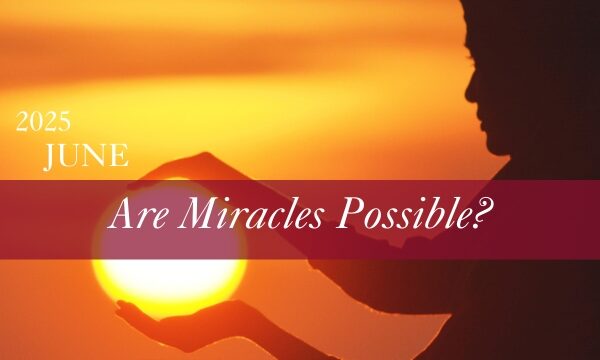Back to series
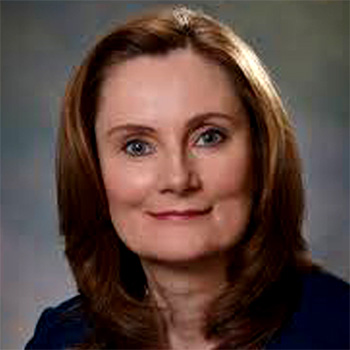

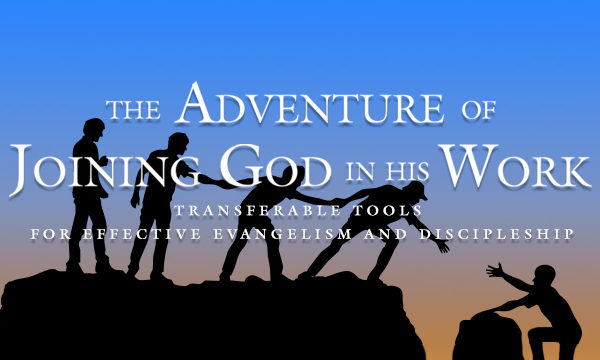
Knowing and Doing
Click here to open a Print - Friendly PDF
The reality for all Christians is the
obligation to equip themselves for their greatest impact
and to seek every
opportunity to increase that impact.
And never to suspect that they are not called or that
their time has passed them by.
— Hugh Hewitt1
Doing well is the result of doing good.
— Ralph Waldo Emerson
There’s a cartoon plastered to the front of my refrigerator depicting a group of people at a party standing around holding drinks. One person, talking to the others, says, “We’re all friends here. Try to forget that I’m an ethicist.” Someone gave me that clipping in jest, but I’m quite certain that I’ve squelched more than a few cocktail party conversations, as soon as fellow partygoers learned what I do for a living: I work in the ethics industry, leading a non-profit that helps other organizations establish ethics and compliance programs, and providing resource materials to educators to help them instill character in tomorrow’s workforce.
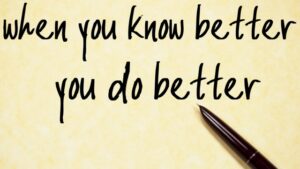 People balk at the fact that there is an ethics industry, or that we need one, but pull out a smattering of newspapers from the past few years, and the cause for an industry around ethics is readily apparent. The American public trust has been eroded by scandals that have touched almost every sector of our lives. A University of Chicago poll in 2002 indicated that the percentage of people who are in agreement that “most people can be trusted” has dropped to a meager 35% of our population. In the past year, 46% of employees have observed some form of misconduct that violated either the law or their organization’s standards, but only 1 in 3 reported it.2 We’ve seen headlines revealing inappropriate actions of business executives, journalists, politicians, celebrities, pundits, doctors, lawyers, accountants, members of Wall Street…and most shocking for us as believers…headlines decrying the behaviors of religious leaders. We are losing faith that goodness and rightness can prevail in human beings of faith who have delved deeply into discussion about the environment, or the challenges of relativism as a worldview, or what people of faith should do with the postmodern dialogue.3 They assert that while it certainly seems threatening, the cultural allowance for multiple truths in the postmodern age at the very least allows Christians to have their perspectives respected too.
People balk at the fact that there is an ethics industry, or that we need one, but pull out a smattering of newspapers from the past few years, and the cause for an industry around ethics is readily apparent. The American public trust has been eroded by scandals that have touched almost every sector of our lives. A University of Chicago poll in 2002 indicated that the percentage of people who are in agreement that “most people can be trusted” has dropped to a meager 35% of our population. In the past year, 46% of employees have observed some form of misconduct that violated either the law or their organization’s standards, but only 1 in 3 reported it.2 We’ve seen headlines revealing inappropriate actions of business executives, journalists, politicians, celebrities, pundits, doctors, lawyers, accountants, members of Wall Street…and most shocking for us as believers…headlines decrying the behaviors of religious leaders. We are losing faith that goodness and rightness can prevail in human beings of faith who have delved deeply into discussion about the environment, or the challenges of relativism as a worldview, or what people of faith should do with the postmodern dialogue.3 They assert that while it certainly seems threatening, the cultural allowance for multiple truths in the postmodern age at the very least allows Christians to have their perspectives respected too.
As Christians, we can easily diagnose the problem by pointing to the cause—”for all have sinned, and fallen short of the glory of God” (Romans 3:23). We’re a mess, and so naturally, we mess up. One would think that such insight would spur us to talk with people about the root cause of all the corruption we witness. Yet when issues of morality arise in our world, especially the really tough ones (the “gray areas” as we call them in “the biz”), rather than taking the risk to help a struggling world set its sights on universal truths, it’s very tempting to pull our loved ones closer and quietly withdraw into the seemingly safe shelter of our Christian communities. We fear the postmodern world, rather than welcoming the invitation it offers for us to demonstrate that there is a way for goodness to guide our decisions.
Engaging With the World
In some ways it’s easy for me to cultivate difficult debate about ethics. After all, I have Federal Sentencing Guidelines for Organizations, Sarbanes-Oxley regulations, New York Stock Exchange listing requirements, the Thompson Memo—the business world is not lacking public regulation. Similar regulations exist in other fields, and international attention is being given to the problem of unethical conduct as well. Then of course, there’s the ever-present media to help highlight ethical shortcomings, making a ready entrée into the debate.
But I also have to walk into an office every day that promotes ethics from a non-partisan, non-sectarian perspective. Not only that, but I lead that effort to promote virtues in other organizations, without prescribing what those virtues should be. My organization endeavors to foster ethical conduct in people, by helping organizational leaders to identify and nurture their own organizational standards as a priority among their members. And as a Christian, I am like many others who bring their personal values to a workplace—it’s just that I bring my personal faith-based values to a workplace actively grounded in promoting a non-sectarian worldview.
A large number of Christians have asked me how I am able to do that, yet there are many men and women of faith who have delved deeply into discussion about the environment, or the challenges of relativism as a worldview, or what people of faith should do with the postmodern dialogue.3 They assert that while it certainly seems threatening, the cultural allowance for multiple truths in the postmodern age at the very least allows Christians to have their perspectives respected too.
But the most poignant examples of cultural engagement were modeled by Jesus himself: from the exchange with the woman at the well (John 4:7-29) to his discussion with Nicodemus (John 3:1-21), he not only drew people in discussion about their ethical decisions, he challenged them in the most tender of ways by encouraging them to look closely at their operative sense of truth. But most importantly, he did it all by deeply respecting (but not tolerating) the perspectives on which they’d grounded their worlds.
 So I show up for work each day, and hope to impact the culture by prizing the pluralistic tenets of my organization. The following are some truths that I’ve learned.
So I show up for work each day, and hope to impact the culture by prizing the pluralistic tenets of my organization. The following are some truths that I’ve learned.
It’s not about me. God certainly wants to use me, otherwise I wouldn’t feel called to the work I do. But God also doesn’t need me—after all, the battle belongs to the Lord (Deut. 20:1). My job is not to expound my Christian beliefs in the secular workplace.
My role is not to point out the particular sins of people. In my role right now, planting a seed doesn’t mean seeing it through to harvest. And when I get to thinking that way (as I am apt to do), I jeopardize not only my job and the good name of my organization, I also believe I jeopardize the work of the kingdom.
I don’t have to check my values at the door, but one of my values needs to be respecting the values of my workplace. One of the things I like best about my office is that there are people of various faiths and worldviews working together out of a common belief that ethics is important. We sometimes disagree. We argue. But we also compromise, and we work together. And in that exchange, I get to share my perspective. I do not hide my faith as an important source from which I derive my sense of ethics, but I also know that the values I espouse must also include recognizing and respecting that others do not have my view. And when I can do that, not only do I show people love in action, but I also learn a whole lot about something new. My faith is deeper because I am willing to listen to a very different perspective that makes me seek to understand more of what I hold to be truth.
I don’t have to prescribe my values for people to find universal truth. When I engage groups of people in the process of identifying the values that will govern their organizations, rarely am I surprised by the virtues that end up on the list. This very idea is borne out in research: people, when allowed to think through the virtues they prize, identify the same ideals (albeit worded and ordered differently to take into account culture).4 What’s amazing is that after they’re through, people aren’t surprised to learn that they’re just like everybody else. The difference, if I allow myself to step back and allow the process to happen, is that it allows for people to enter into enlightened discovery of universal truth. It also makes the values people identify theirs. Isn’t that what Christians want: for people to embrace God’s truth as their own?
My efforts towards integrity are most powerful when I think out loud and make mistakes. Ironically, as a leader within the world of ethics, I often need to slug my way through even the smallest of ethical dilemmas. It’s hard to speak to leaders of thousands about “tone at the top,” when I struggle to be consistent with my own staff of fourteen. I know more about conflicts of interests now in part because I seem to keep bumping up against decisions that pose them myself. Leaders always leave a legacy that lasts far longer than we think, and it is the sum of every small decision we make along the way. Ironically, I find that the more I talk about the struggles I face and the mess I am, the more people perceive that I really want to live this ethics stuff. Research backs me up—leaders who talk about the importance of ethics, who explain the logic behind their struggles, and who admit their mistakes are perceived by others to be both moral people and moral managers.5
Conclusion
God certainly doesn’t call us all to be ethicists, but I find that there are few other topics that stir people as much as discussion of all that’s wrong in the world. Everyone can find something to say about that. In a world where integrity seems to be fading, there are many opportunities for it to stand out.
Increasingly there is support in the public square that influencing ethical conduct should be a priority—among youth in schools, adults in business, and government officials here and abroad. In other words, the invitation is present for all of us to engage in the dialogue that is going on about what is right. The key is not only to know what is good through faith, but also to do what is good by faith with love.
In everything set them an example by doing what is good.
In your teaching show integrity, seriousness and soundness of speech
that cannot be condemned, so that those who oppose you may be ashamed
because they have nothing bad to say about us. — Titus 2:7-8
Notes
1 Hewitt, H. (2003). In, But Not Of. Nashville, TN: Thomas Nelson Publishers.
2 Ethics Resource Center, (2003). 2003 National Business Ethics Survey. Washington, DC: Ethics Resource Center.
3 For further reading, consult Lindsley, A. (2004) True Truth: Defending Absolute Truth in a Relativistic World. Downers Grove, IL: InterVarsity Press.; Hollinger, D. (2002). Choosing the Good: Christian Ethics in a Complex World. Grand Rapids, MI: Baker Academic. For a secular point of view, read Kekes, J. (1993). The Morality of Pluralism. Princeton, NJ: Princeton University Press.
4 Wilson, J.Q. (1993). The Moral Sense. New York, NY: The Free Press; Kidder, R. (1994). Shared Values for a Troubled World. USA: John Wiley & Sons.
5 Treviño, Brown & Hartman (2003). Human Relations, 56(1); Prince (2004). http://da.mod.uk/DLC/Research

Patricia Harned
SpeakerPatricia Harned, Speaker, is the chief executive officer of the Ethics & Compliance Initiative (ECI), America’s oldest nonprofit in the ethics & compliance industry. Dr. Harned is an expert on culture change, ethical leadership, and workplace reporting/retaliation. She speaks and writes frequently as an expert on ethics in the workplace, corporate governance, and global integrity. Dr. Harned was selected by Ethisphere Magazine as one of the 100 Most Influential People in Business Ethics in 2007, 2014 and 2015, and was named one of the Top Thought Leaders in Trust in 2010, 2011, 2018 and 2020 by the nonprofit organization Trust Across America. Dr. Harned received her PhD from the University of Pittsburgh.

 COPYRIGHT: This publication is published by C.S. Lewis Institute; 8001 Braddock Road, Suite 301; Springfield, VA 22151. Portions of the publication may be reproduced for noncommercial, local church or ministry use without prior permission. Electronic copies of the PDF files may be duplicated and transmitted via e-mail for personal and church use. Articles may not be modified without prior written permission of the Institute. For questions, contact the Institute: 703.914.5602 or email us.
COPYRIGHT: This publication is published by C.S. Lewis Institute; 8001 Braddock Road, Suite 301; Springfield, VA 22151. Portions of the publication may be reproduced for noncommercial, local church or ministry use without prior permission. Electronic copies of the PDF files may be duplicated and transmitted via e-mail for personal and church use. Articles may not be modified without prior written permission of the Institute. For questions, contact the Institute: 703.914.5602 or email us.
-
Recent Podcasts
The Emergence of Evangelical Discipleship
by Aimee Riegert, Tom Schwanda on July 11, 2025Evangelical Discipleship: What can we learn from the...Read More
-
Reasoning Requires Faith – Jeffrey Geibel’s Story
by Jeffrey Geibel on July 4, 2025
-
Fix Your Eyes Upon Jesus
by Steven Garber, Aimee Riegert on June 27, 2025
-
Recent Publications
Are Miracles Possible
by Christopher L. Reese on June 1, 2025The 21st century has provoked many conversations and...Read More
-
Is God Just, Not Fair?
by Jennifer Rothschild on May 15, 2025
-
Seeking Dietrich Bonhoeffer
by Joseph A. Kohm on April 29, 2025
0
All Booked
0.00
All Booked
0.00
All Booked
24720
The Adventure of Joining God in His Work Live Online Small Group 7:00 PM CT
https://www.cslewisinstitute.org/?event=the-adventure-of-joining-god-in-his-work-live-online-small-group-700-pm-ct&event_date=2025-09-16®=1
https://www.paypal.com/cgi-bin/webscr
2025-09-16

Next coming event
Days
Hours
Minutes
Seconds
The Adventure of Joining God in His Work Live Online Small Group 7:00 PM CT
On September 16, 2025 at 7:00 pmSpeakers
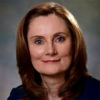
Patricia Harned
Speaker
Team Members

Patricia Harned
SpeakerPatricia Harned, Speaker, is the chief executive officer of the Ethics & Compliance Initiative (ECI), America’s oldest nonprofit in the ethics & compliance industry. Dr. Harned is an expert on culture change, ethical leadership, and workplace reporting/retaliation. She speaks and writes frequently as an expert on ethics in the workplace, corporate governance, and global integrity. Dr. Harned was selected by Ethisphere Magazine as one of the 100 Most Influential People in Business Ethics in 2007, 2014 and 2015, and was named one of the Top Thought Leaders in Trust in 2010, 2011, 2018 and 2020 by the nonprofit organization Trust Across America. Dr. Harned received her PhD from the University of Pittsburgh.




